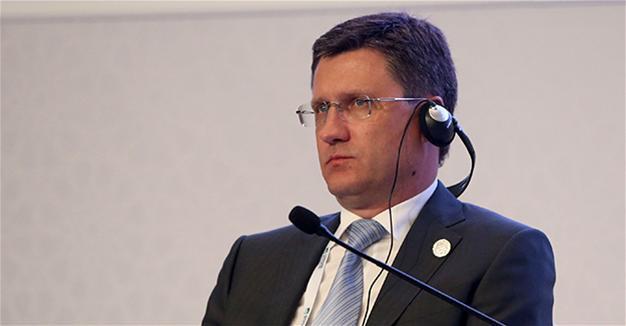Gulf crisis not likely to affect OPEC output cut: Russian energy minister
ISTANBUL-Anadolu Agency

The Gulf crisis between Qatar and some Arab states led by Saudi Arabia would not affect the Organization of Petroleum Exporting Countries’ (OPEC) oil cap agreement, Russian Energy Minister Alexander Novak said on July 10.
Speaking on the sidelines of the 22nd World Petroleum Congress in Istanbul, Novak said he does not foresee any problems or dispute on the OPEC agreement to cut production due to the crisis between Qatar and the other Gulf countries.
In May 25, OPEC members agreed to extend their previous agreement by nine more months to March 2018 to lower oil output. The members agreed to continue lower oil production by 1.2 million barrels per day (bpd), down to 32.5 million bpd.
Russia agreed to cut 300,000 barrels of daily oil production in line with OPEC’s latest accord in May 2017.
“We had the opportunity to discuss this issue with a Qatari minister here today. He also expressed Qatar’s determination to fulfil its responsibilities that it took in December,” Novak said.
Novak held a bilateral meeting on July 10 with Qatar’s Energy and Industry Minister Mohammed Bin Saleh Al-Sada at the petroleum congress.
First unit of Akkuyu in 2023
Novak also said the Akkuyu nuclear power plant, set to be Turkey’s first nuclear power plant, was discussed among Russian and Turkish officials.
“The first unit of the Akkuyu nuclear power plant is to be commissioned by 2023, the centenary of the Turkish Republic,” he said.
On June 19, Russian state-owned nuclear power company Rosatom signed an agreement with Cengiz-Kolin-Kalyon, a Turkish consortium of contracting conglomerates, to sell a 49 percent stake in Turkey’s Akkuyu nuclear power plant project.
The plant will have a capacity of 4,800 megawatts in four units and a working lifetime of 8,000 hours per year.
 The Gulf crisis between Qatar and some Arab states led by Saudi Arabia would not affect the Organization of Petroleum Exporting Countries’ (OPEC) oil cap agreement, Russian Energy Minister Alexander Novak said on July 10.
The Gulf crisis between Qatar and some Arab states led by Saudi Arabia would not affect the Organization of Petroleum Exporting Countries’ (OPEC) oil cap agreement, Russian Energy Minister Alexander Novak said on July 10.